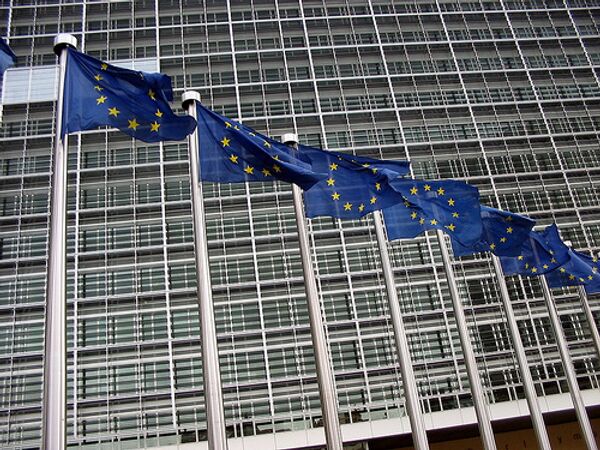The EU Foreign Affairs Council extended on Monday sanctions on Belarus by one year over continuing human rights abuses, lack of legitimacy and failure to respect democratic principles in the country.
“As not all political prisoners have been released and no released prisoner has been rehabilitated, and against the background of the lack of improvement as regards the respect for human rights, the rule of law and democratic principles, the Council decided to prolong the existing restrictive measures until 31 October 2013,” the EU foreign policy body said in a statement.
At the same time, the council reiterated its firm commitment to strengthening the EU's engagement with the Belarusian people and civil society.
Minsk sharply criticized the EU move saying it “practically freezes the relations between Belarus and the European Union at the level that does not suit the interests of either side.”
“We believe that this policy goes contrary to the notion of neighborly relations,” the Balarusian Foreign Ministry said in a statement on Monday. “To overcome the existing differences both sides must meet halfway.”
The last time sanctions were renewed, on March 23, they were targeted at those Belarusian individuals, organizations and companies "benefiting from and supporting the regime," and according to the EU, infringing human rights.
Belarus has been subject to EU sanctions since 1996, two years after Lukashenko became president, though they were temporarily suspended in 1999 and 2008.
The West accuses the Belarusian authorities of persecuting the political opposition and the denial of basic rights and freedoms, in particular freedom of expression.
Belarus President Alexander Lukashenko maintains that pressure on Minsk is pointless and said he hopes the European Union will try to regain its credibility as a serious partner and a good neighbor.
Belarusian-EU relations worsened in late February when the EU expanded its sanctions against Belarus over its alleged human rights violations, after which Minsk ordered the Polish and EU ambassadors to leave the country. All EU ambassadors were withdrawn in response. In late March the EU further expanded the list of Belarusian officials and companies covered by the sanctions.
Relations worsened further after Belarus expelled Swedish Ambassador Stefan Eriksson in August over an incident in which a Swedish light aircraft dropped hundreds of teddy bears bearing pro-democracy slogans over Belarus in July.
The EU also criticized the September parliamentary elections in Belarus, which according to Brussels, failed to meet international democratic standards. All 110 seats to the country's parliament, the National Council were won by pro-Lukashenko candidates.


